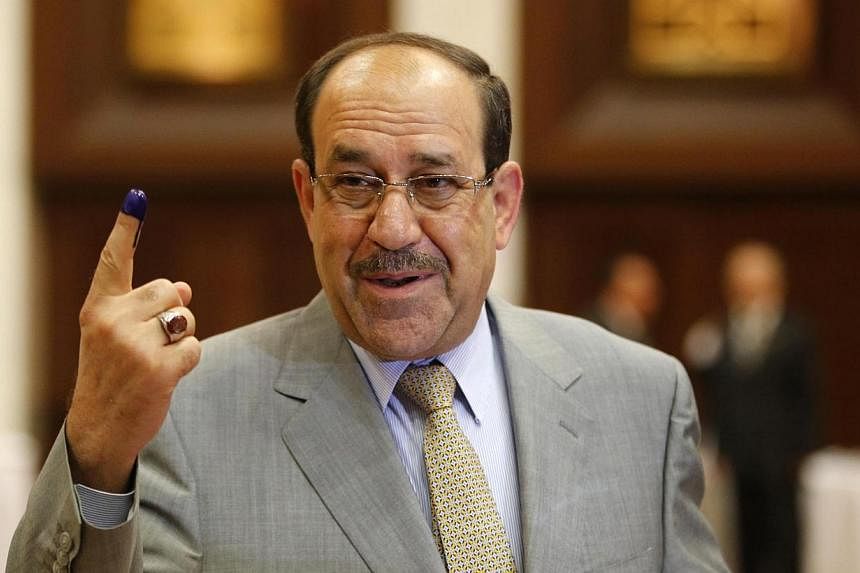BAGHDAD (AFP) - Prime Minister Nuri al-Maliki won the most seats in Iraq's elections but fell short of a majority, leaving him in the driver's seat to retain his post despite vocal opposition.
The results from the election commission showed Mr Maliki's State of Law alliance garnered 92 out of 328 parliamentary seats, with the incumbent himself winning more than 721,000 personal votes.
Both were by far the highest such figures from the April 30 election. But he still fell short of a majority, meaning he will have to win the support of rivals from across the communal spectrum, some of whom have sharply criticised Mr Maliki and refused to countenance his bid for a third term in office.
State of Law won 30 seats in Baghdad alone, and came first in 10 provinces overall, all of them in the bloc's traditional heartland in the Shiite-majority south of the country.
Mr Maliki's main rivals all finished with between 19 and 29 seats overall, according to an AFP tally of election commission results.
Iraq's political parties have for weeks been meeting and manoeuvring as they seek to build post-election alliances, but the formation of a new government is still expected to take several months.
As in previous elections, the main blocs are expected to agree on an encompassing package that ensures the prime minister, president and parliament speaker are all selected together.
Under a de facto agreement established in recent years, Iraq's prime minister is a Shiite Arab, the president is a Kurd and the speaker of parliament is a Sunni Arab.
Mr Maliki's critics accuse him of consolidating power, particularly within the security forces, and blame him for a year-long deterioration in security, rampant corruption and what they say is an insufficient improvement in basic services.
The election and its aftermath came amid a surge in violence that has killed more than 3,500 people this year, fuelling fears that Iraq could be slipping back into the all-out conflict that cost tens of thousands of lives in 2006 and 2007.
In particular, the 63-year-old faces strong and vocal opposition in the Sunni-dominated west and the Kurdish north, with rivals there insisting they will not agree to a third term.
Mr Maliki blames external factors such as the war in neighbouring Syria for the surge in unrest, and says his so-called partners in government snipe at him in public and block his legislative efforts in parliament.
The run-up to the election, Iraq's first since US troops withdrew at the end of 2011, was plagued by attacks on candidates and campaign rallies, and allegations of malpractice that contributed to lower turnout in areas populated by disgruntled minority Sunnis.
But the election has nevertheless been hailed largely as a success by the international community, with the United States and United Nations praising voters for standing up to militancy.

